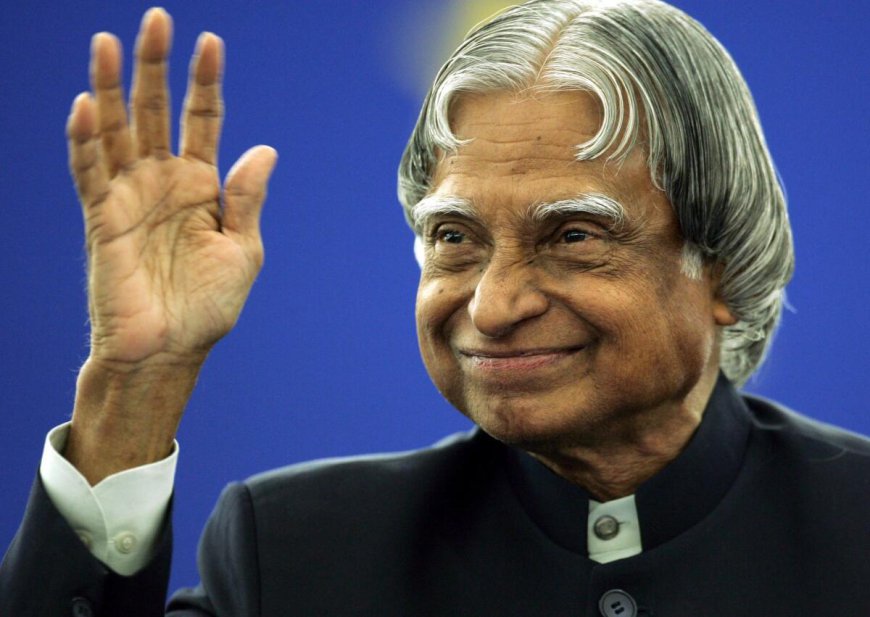The Remarkable Legacy of APJ Abdul Kalam: Rockets, Satellites, Missiles, and Nukes
Unlock the incredible story of Dr. APJ Abdul Kalam's enduring legacy in our blog post, "The Remarkable Legacy of APJ Abdul Kalam: Rockets, Satellites, Missiles, and Nukes." Explore the life of the "Missile Man of India" and his groundbreaking contributions to science, technology, and leadership that continue to shape the world.

In the annals of history, few individuals have left as indelible a mark as Dr. APJ Abdul Kalam. Known as the "Missile Man of India," his contributions to the fields of rockets, satellites, missiles, and even nuclear technology have had a profound impact not only on his homeland but also on the world. In this blog post, we delve deep into the extraordinary life and achievements of Dr. Kalam, tracing his journey from a small village in India to the corridors of power in New Delhi. Join us as we explore the scientific brilliance, leadership, and the enduring legacy of a man who transcended boundaries and inspired millions.
From Rameswaram to the Stars: A Humble Beginning
Dr. Avul Pakir Jainulabdeen Abdul Kalam was born on October 15, 1931, in Rameswaram, a small town in Tamil Nadu, India. Raised in modest surroundings, he overcame adversity with an unquenchable thirst for knowledge and a relentless pursuit of his dreams.
The Visionary Scientist
After completing his education, Kalam joined India's premier space agency, the Indian Space Research Organisation (ISRO). His early work was instrumental in India's first satellite launch, 'Aryabhata,' in 1975. Dr. Kalam's innovative ideas and dedication to advancing India's space capabilities marked the beginning of a legacy that would redefine the nation's scientific and technological aspirations.
The Missile Program
In the 1980s, Dr. Kalam's journey took a significant turn when he began to lead India's missile development program. His pivotal role in the development of ballistic missiles like Agni and Prithvi bolstered India's defense capabilities and earned him the title of the "Missile Man of India." The successful testing of these missiles brought India into an elite group of nations with the capability to design and produce its ballistic missiles.
Pioneering Nuclear Technology
Dr. Kalam's involvement in India's defense technology extended to the country's nuclear program. He played a crucial role in the successful testing of nuclear weapons at Pokhran in 1998, catapulting India into the league of nuclear-armed nations.
A People's President
Dr. Kalam's contribution to India's scientific and defense advancements was only a part of his remarkable journey. In 2002, he was elected as the President of India, becoming one of the most beloved and respected figures in the nation's history. He used his presidency to inspire and connect with the youth of India, encouraging them to pursue scientific and technological pursuits.
A Lasting Legacy
Dr. APJ Abdul Kalam's remarkable legacy continues to inspire millions. His life's work serves as a testament to the power of vision, dedication, and innovation. He believed that the power of science and technology could transform a nation's destiny, and his life's story is a testament to that belief.
Conclusion
Dr. APJ Abdul Kalam's life and work remain an enduring source of inspiration for generations to come. His journey from a humble background to the pinnacle of science and leadership exemplifies the boundless potential of human endeavor. The "Missile Man of India" left an indelible mark not only on India but on the world, reminding us that with dedication and a visionary spirit, we can reach for the stars, whether they are the celestial kind or the ones that symbolize our loftiest dreams.







